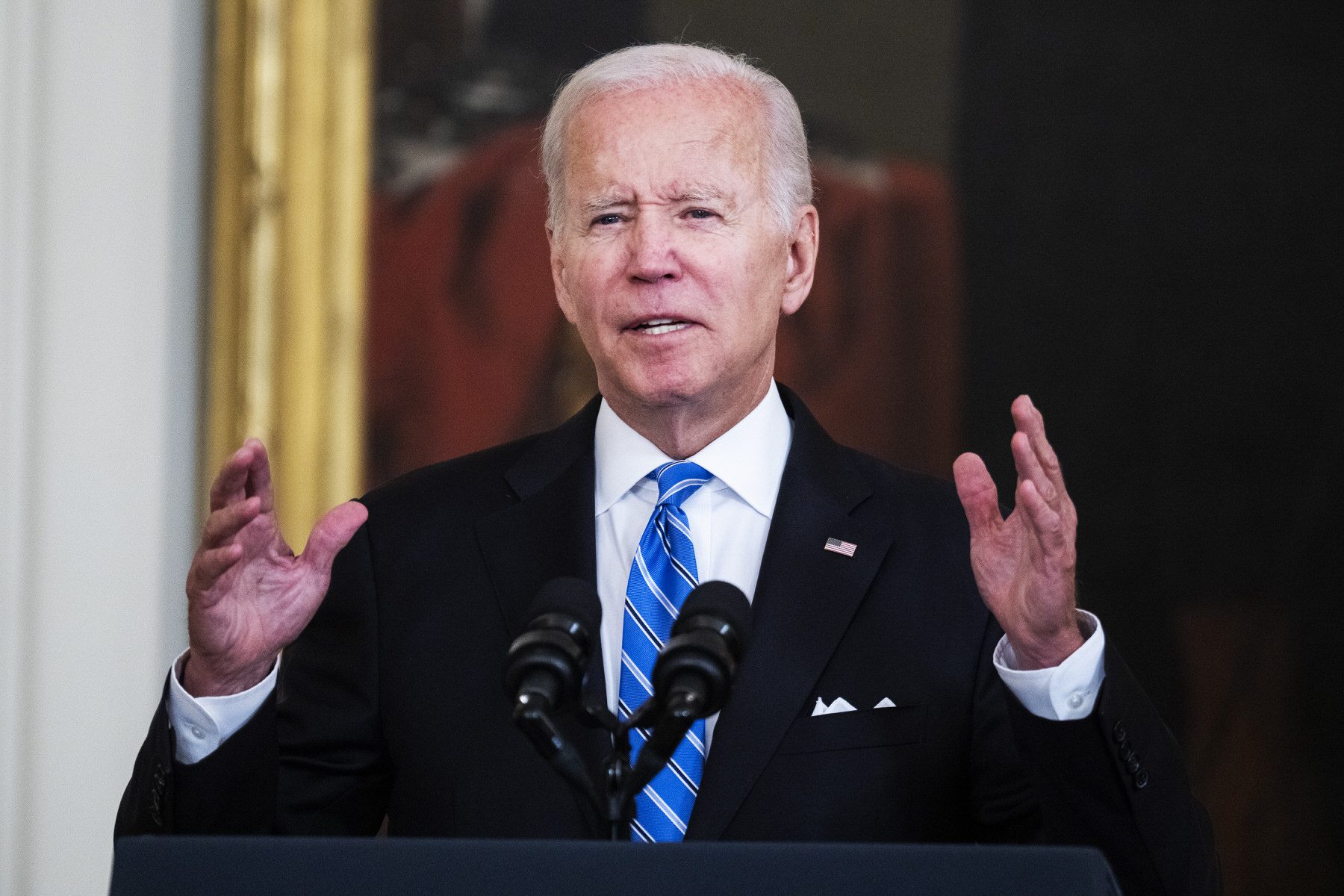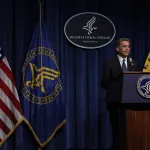Editor’s note: This article has been updated throughout.
President Joe Biden signed an executive order Friday designed to expand access to medication abortion and education about legally available abortion options, as well as provide legal backing for people seeking or providing abortions.
Biden suggested that there is little he can do independently to address abortion rights, and encouraged people — particularly women — to vote for “two additional pro-choice Senators and a pro-choice House.” That framing implies that two more Senators could give enough votes to overrule the Congressional filibuster and pass a law re-establishing the protections of Roe v. Wade.
“You, the women of America, determine the outcome of this issue,” Biden said.
But legal experts told The 19th that, two weeks after the Supreme Court overturned Roe in the case known as Dobbs v. Jackson Women’s Health Organization, this executive order provides little clarity about what steps the administration plans to take, and when they might have an impact.
Since Roe was overturned, eight states have begun enforcing total abortion bans, and three more have restricted access to the procedure for people beyond six weeks of pregnancy. Confusion over what laws are in effect has resulted in clinics scaling back services even when total abortions bans haven’t yet taken effect.
The president’s executive order directs his Department of Health and Human Services (HHS) to, within the next 30 days, “take additional action to protect and expand access to abortion care, including access to medication.” But it’s not clear how the White House intends to shore up access to medication abortion, a two-pill regimen of mifepristone and misoprostol that is approved by the federal Food and Drug Administration (FDA) and can safely terminate a pregnancy within the first trimester.
The executive order also directs the White House counsel and the U.S. attorney general to coordinate volunteer lawyers who will defend patients and medical providers facing state-based charges for “lawfully seeking or offering reproductive health care services throughout the country.” Those lawyers could defend people who are prosecuted for traveling from a state that has banned abortion to one where it remains legal. In his remarks, the president also emphasized that people are legally allowed to travel out of state for an abortion and that his administration would protect their right to do so — though he did not indicate precisely how that might occur.
“The executive order is not very clarifying,” said Mary Ziegler, an abortion law historian at the University of California, Davis. “It’s like, ‘we’re going to order a bunch of people to think about stuff they could do in 30 days,’ without saying what.”
Two weeks ago, the day Roe was overturned, Attorney General Merrick Garland said states could not ban access to medication abortion based on disagreements with the FDA, a sentiment reiterated by the president.
But since then, the administration has not specified what that looks like in practice. The White House has still not clarified whether the government will sue states that have restricted access to medication abortion, or how it might otherwise expand access to those pills. A case pending in Mississippi, GenBioPro v. Dobbs, could address that question – the company GenBioPro, which manufactures mifepristone, has sued the state for banning the use of medication abortion.
But in the interim, “it feels like [White House officials[ haven’t settled how vigorously they’ll push the preemption argument and to what end,” Ziegler said.
The executive order also instructs HHS to consider issuing new guidance under the Health Insurance Portability and Accountability Act (HIPAA) — which includes medical privacy safeguards — to clarify that medical staff need not and often cannot disclose patient’s health information to outsiders, including law enforcement. That provision could be leveraged to address concerns about states arresting or attempting to prosecute patients who miscarry or who induce their own abortions. (Medication abortions resemble miscarriages.)
And it directs the Federal Trade Commission (FTC) to address online privacy concerns, by “protect[ing] consumers’ privacy when seeking information about and provision of reproductive health care services.” The executive order tells HHS, the FTC and the attorney general to “address deceptive or fraudulent practices, including online, and protect access to accurate information.”
That provision — which the president has not mentioned before — could suggest the administration is looking to target so-called “crisis pregnancy centers.” Those organizations are not medically clinics, are usually religiously affiliated, and are often marketed to resemble health centers for people experiencing unintended pregnancies. They do not provide abortions, and have been criticized for offering free but inaccurate ultrasound readings that can suggest people are further along in pregnancy than they are.
The president cannot compel independent agencies to take a specific enforcement tactic, but crisis pregnancy centers constitute a “perfect example” of the organizations that could be affected under this directive, Jen Klein, who co-chairs the White House Gender Policy Council, told The 19th.
Greer Donley, an assistant professor at the University of Pittsburgh who specializes in medication abortion law, praised the inclusion of the provision. “This is a really important and critical area for the government to get involved in. I’m encouraged to see clearly the Biden administration knows this is a problem and wants to act on it.”
But it’s unclear what exactly that kind of law enforcement could look like, she added.
“To be frank, they had so much lead time before this. It’s frustrating that this executive order coming two weeks after the Dobbs decision is directing agency heads to come up with things,” she said. “Theoretically, that work should have been done months ago.”
Biden’s executive order also directs the government to protect abortion providers and clinics against threats of violence and establish a Task Force on Reproductive Health Care Access to coordinate the federal response to abortion bans. The task force will include the attorney general, who will also be tasked with supporting states in protecting patients and medical providers who are seeking or offering abortions that are legal in their states.
And he tasked HHS with coordinating outreach efforts to make sure people know the circumstances under which abortion remains legal. The order instructs the department to clarify that, under existing federal law, emergency rooms cannot turn away patients or deny them care if they are in a medical crisis. That provision could address concerns about abortion bans resulting in medical care being denied to people who are miscarrying or experiencing ectopic pregnancies.
It’s not clear if the White House is weighing other actions beyond what the order encompasses. At this point, Klein said, the president is not planning to declare a “public health emergency” – a step some congressional Democrats and abortion rights advocates have called for. But such a move isn’t off the table either, she said.
“We are just looking at any option that is legally available and that seems to make good policy,” Klein said.






